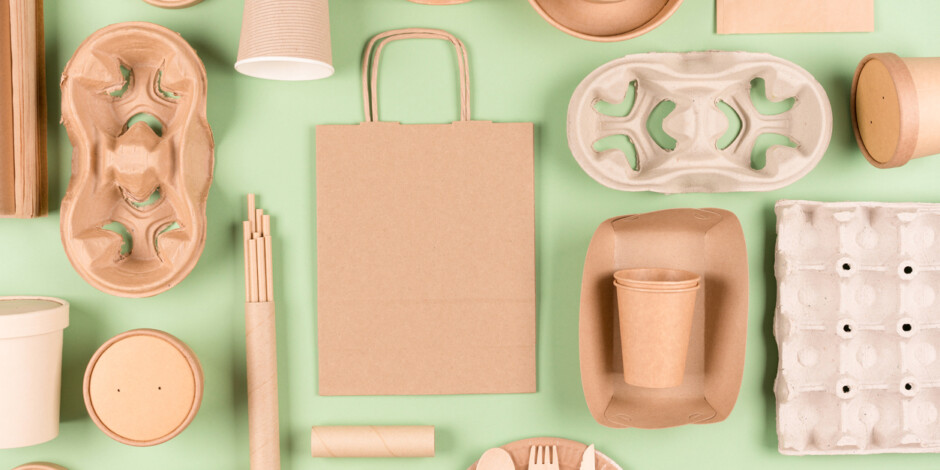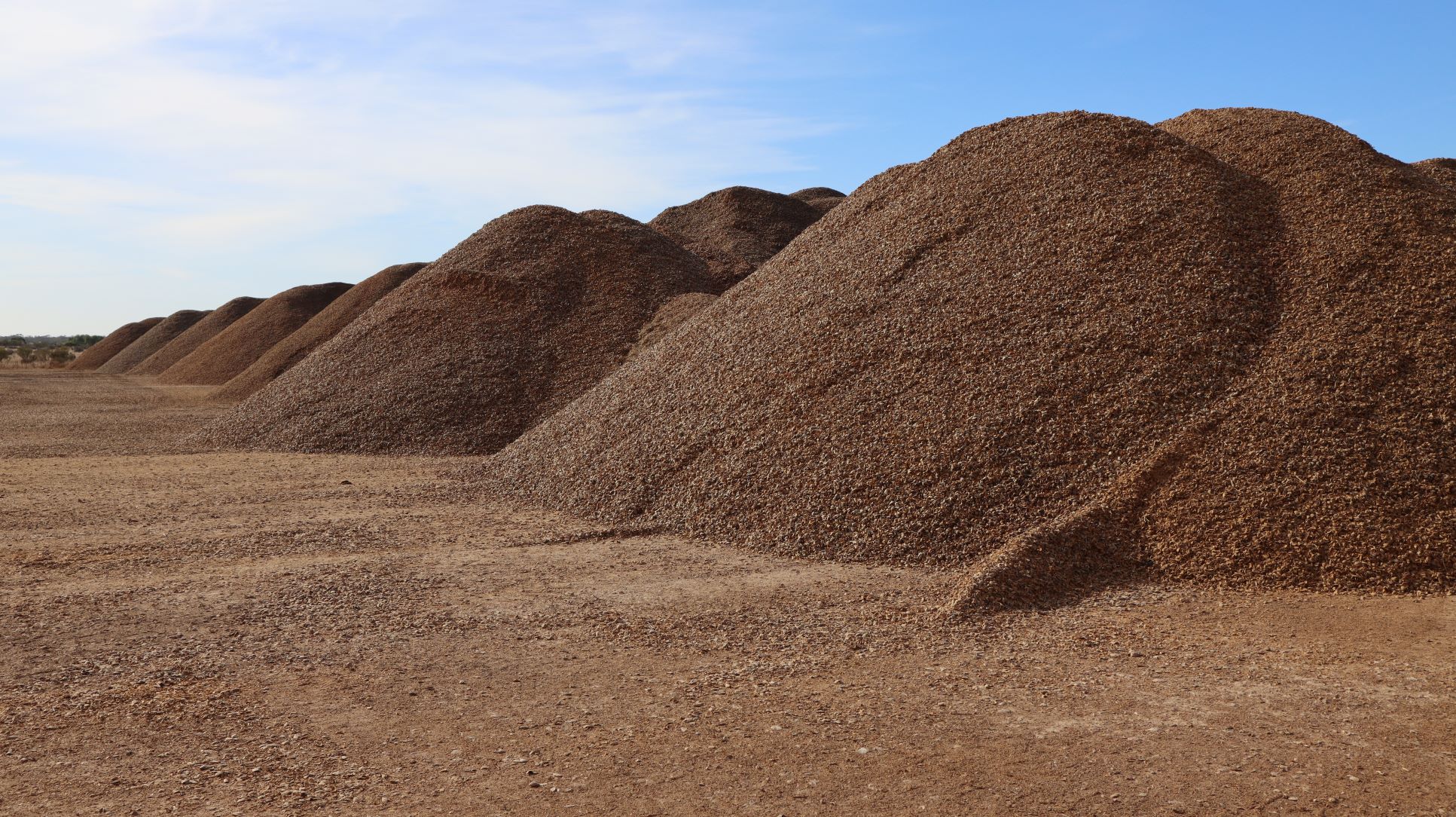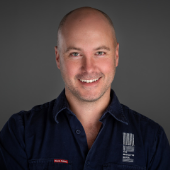Material growth – is there potential for farmers to produce eco-friendly packaging?
With the regulatory tail winds phasing out the use of fossil-based products, alternative materials such as mushrooms, prawn shells and potatoes for packaging will increasingly present opportunities for farmers. The key to economic viability will be having the supply chain and processing facilities in place, says Oli Madgett.
 As states around Australia begin to place bans on plastic packaging, demand for sustainable alternatives has begun to grow. Photo: Iryna Mylinska via iStock.
As states around Australia begin to place bans on plastic packaging, demand for sustainable alternatives has begun to grow. Photo: Iryna Mylinska via iStock.
As someone who is in the midst of kitchen renovations, I can attest to the fact that polystyrene was still very much the packaging of choice for everything we had delivered. Our kerbside bin was kept filled for weeks, with all of it destined to go into landfill. As a consumer (and wannabe contestant on The Block!), it made me ponder how far away we are from a sustainable, compostable future. Could growing alternative materials present a viable avenue for diversifying our incomes as farmers, and help to spread our risks?
The Australian Climate Tech Festival really highlighted the interest, funding and growing community of start-ups working in the sustainable materials space. The climate tech startup world is definitely finding opportunities in the transition to a circular approach for producing a next generation of materials, and many have joined the rapidly growing Climate Salad community that brings together entrepreneurs, investors, researchers and supporters. A significant number of these have crossovers with the agrifood tech space.
BioFab from NZ are harnessing the power of mushroom mycelium to biofabricate eco-friendly packaging and construction materials. By combining fungal mycelium with agricultural waste streams, they literally grow sustainable and fully compostable packaging in a variety of custom shapes using a vertical farming-style operation.
Carapac have looked towards the oceans as a more sustainable alternative to soft plastics. Their packaging material is derived from chitosan that’s contained in the shells of prawns, shrimps, crayfish and crabs after they’ve been processed. They are testament to nature producing elegant solutions, with their sustainable plastic alternatives having natural antifungal and antibacterial properties that help to extend shelf life. The nutrient-rich packaging also acts as a slow-release nitrogen fertiliser when it’s composted.
Great Wrap are a great example of reaching the scale-up phase following their $24m Series A raise, with investment coming from the likes of Woolworths W23 venture arm. And they’ve attracted celebrity endorsement from Zac Effron, as a part of his Netflix series ‘Down to Earth’. They’ve created an alternative to plastic cling wrap and are now moving on to creating a sustainable solution for pallet wrap. Their approach uses bacterial fermentation to convert the starch in potato waste into ‘PHA’s’ (Polyhydroxyalkanoates) which are marine-degradable, compostable biopolymers. Rabobank are financing their new factory at Tullamarine in Melbourne. It will be capable of upcycling nearly 50k tonnes of potato waste per year, making it the largest biorefinery in the southern hemisphere.

Over 100 companies were at the Australian Climate Tech Festival in Sydney. Image: Climate Salad.
Fight Food Waste CRC are also focusing on the potential for potato waste to be turned into bioplastics, packaging materials, coatings and adhesives. They state that up to 40% of potatoes are currently rejected as not meeting market specifications, and the development of an Australian potato starch industry could be a $50m/year opportunity in itself.
Phantm are another PHA orientated start-up focused on the ability of plants such as rice and algae to make plastics through the process of biofermentation. They are working on altering the growing environment so that the natural polymers have specific properties such as stiffness, strength or heat resistance, and their approach has potential to be able to produce plastic in space. So just as Christopher Columbus returned from the ‘New World’ clutching a potato, maybe the humble spud also holds the keys to helping enable the next phase of our exploration of the new world’s #spudnik.
Planet Protector’s Woolpack thermal packaging is designed to be a sustainable alternative to polystyrene being used in cold chain distribution. Utilising wool’s natural thermal properties and its ability to reduce condensation and remove humidity, they are creating reusable packaging that prevents the spoilage of perishable products. It absorbs odours whilst also maintaining the integrity of cardboard boxes and significantly reducing or eliminating the amount of refrigeration required during transportation. These natural benefits have supported their packaging being adopted by partners such as salmon producers, meal kit companies, chocolate brands, and even for the distribution of cattle embryos.
Looking further afield, the likes of NutJobs in the US are upcycling some of the quarter of a million tonnes of nut shell and hull waste generated annually in California alone, and turning it into biocomposite materials that can either be soft, pliable and insulating, or rigid and durable. Underscoring the growing commercial interest in this area, Nutjobs recently won Western Growers AgSharks pitch event, earning them a record equity investment offer of $6m from the judges alone.

An opportunity to upcycle the waste streams of the Australian almond industry? Image: Think.Digital.
Supplying certified home compostable products such as straws and coffee cups to the food and hospitality industries, Compostable Alternatives are positioning themselves to take advantage of the ongoing opportunities being created by the regulation of single use plastic in states such as South Australia. Co-founder Marion Vigot highlights the importance of differentiating between their niche products that are fully compostable in a home compost environment or in soil, and alternatively bioplastics like PLA and Bio-PBS that require industrial composting and would not naturally degrade in soil or if they ended up in the ocean.
It’s easy to see the confusion that we consumers experience as to what bin to dispose of our coffee cups in, and the urgent need to make it clearer and genuinely circular. Compostable Alternatives are aiming to cut through this issue by only working with home compostable products that are certified to ANZ and/or European standards.
Professor Rachel Burton at Adelaide University sees multiple opportunities and challenges ahead for innovating and scaling up the commercial production of more sustainable materials.
“We’ve been in a bit of a chicken and egg scenario where there’s been interest in growing emerging crops like industrial hemp, but farmers have understandably wanted to see what you can make from it, to know that there’s an economically viable end product and a pathway for processing already in place,” Rachel said.
She’s been looking for partners with ‘courage, money and vision to break this cycle’ and has found that combination with VALO’s founder and CEO, Aaron Hickmann. Aaron has grown VALO into a global innovator in lighting technology, backing the VALO Adelaide 500 supercar race, and he’s recently created a sister company Vircura to lead the development of the industrial hemp industry in South Australia.
A massive former Big W distribution centre in regional SA will house, amongst other plant-based technology facilities, a processing and manufacturing plant for environmentally friendly hemp-based building materials. A decorticator machine is being installed to process the crop and separate out the fibre fractions, including hemp hurd and bast fibre, to create building materials such as panels and insulation. Vircura are also developing a network of licenced growers in the nearby South-East region, with the objective of scaling to 2,000ha under production in 2023.
With the regulatory tail winds phasing out the use of fossil-based products, alternative materials will increasingly present opportunities for farmers. The key to economic viability will be having the supply chain and processing facilities in place. I really hope that we start to see this happening in a genuine partnership between producers and entrepreneurs where it’s a win-win for all parties, as well as the environment.
Enjoyed this story? Want to learn more about the Asia Pacific region’s innovative agrifood tech ecosystem? Join us at evokeAG. on 21-22 February 2023 in Adelaide, South Australia. Tickets will sell out – get yours here.
View the full two-day program, including all speakers and partners involved in evokeAG. 2023.
